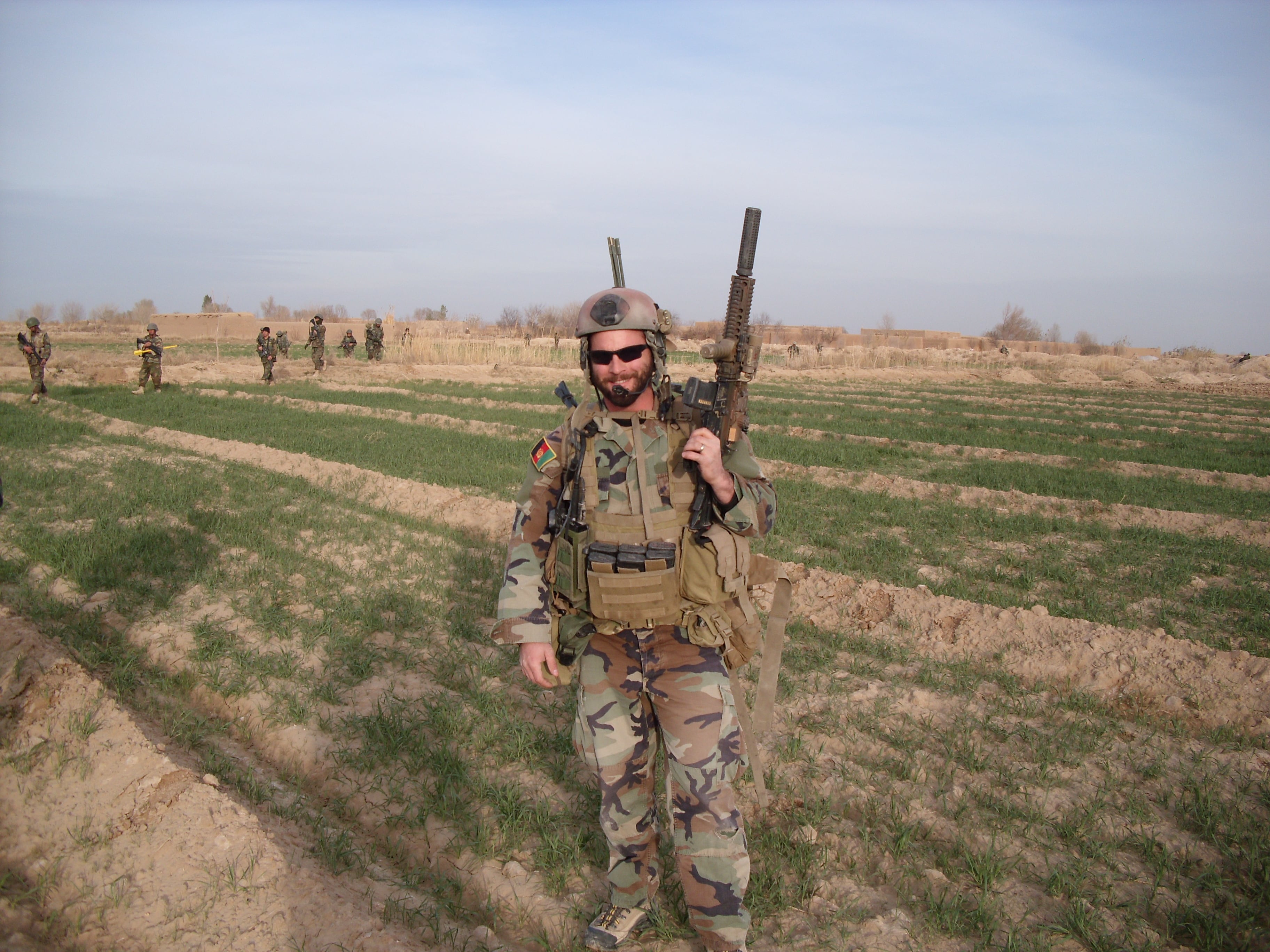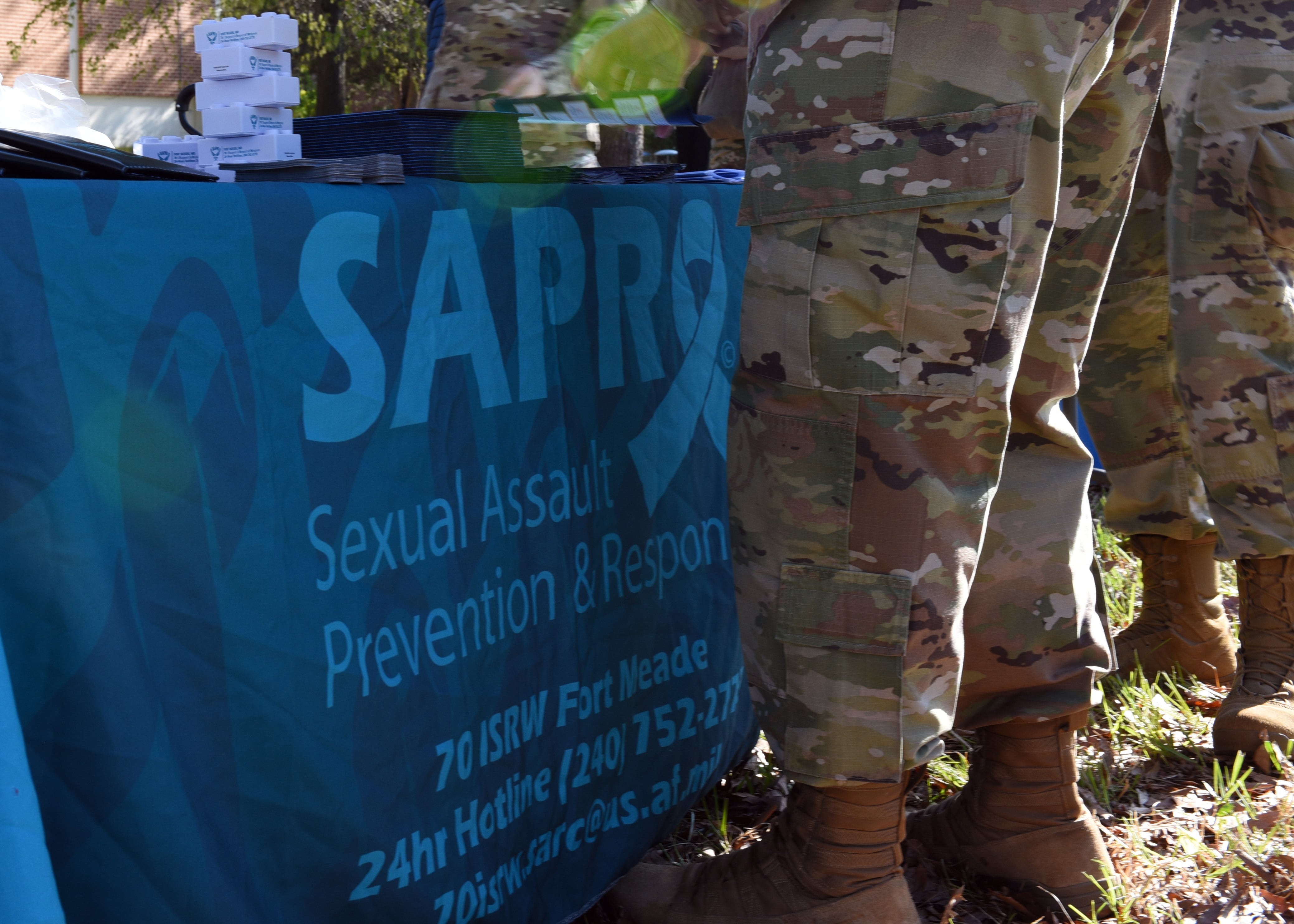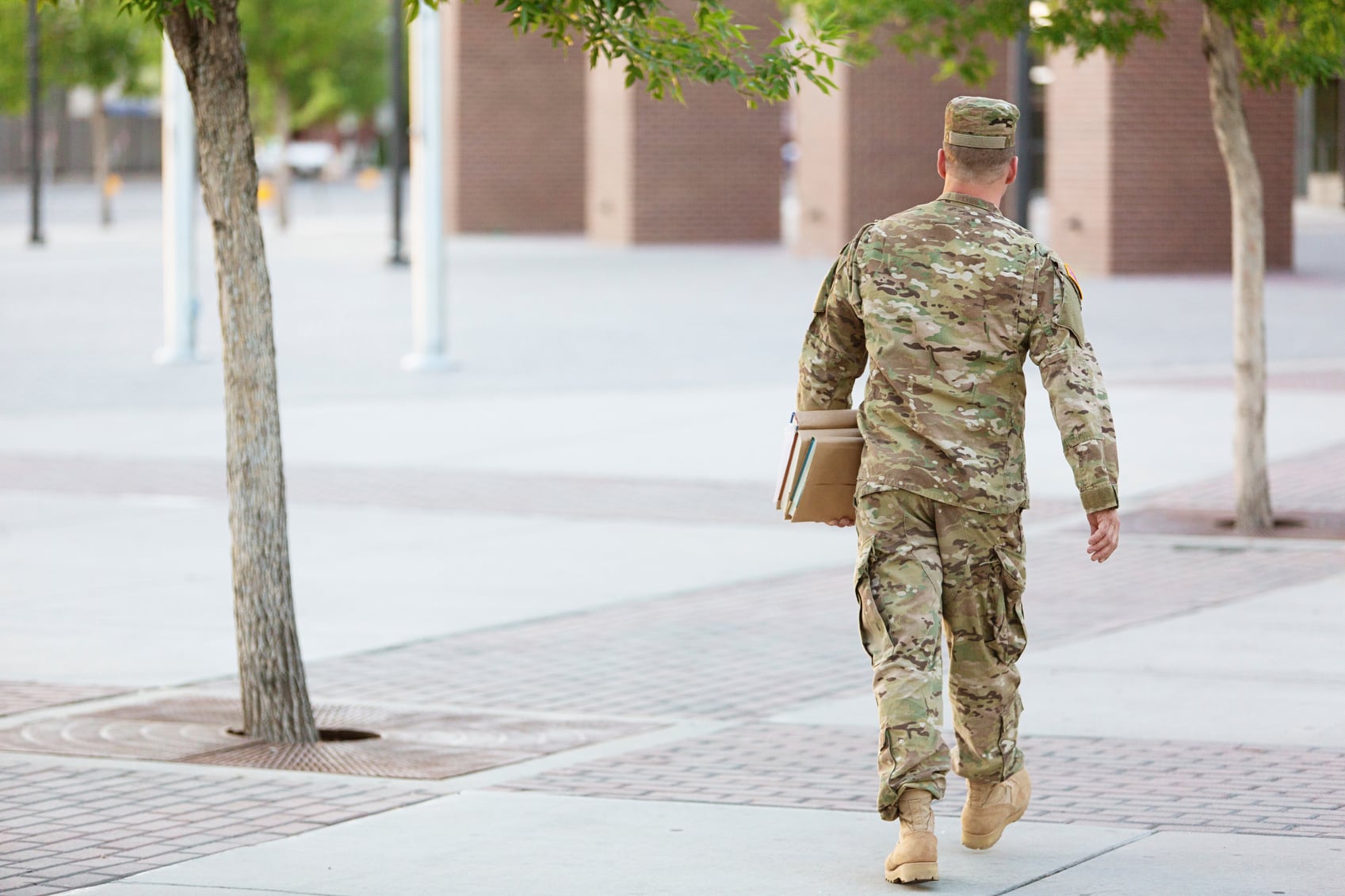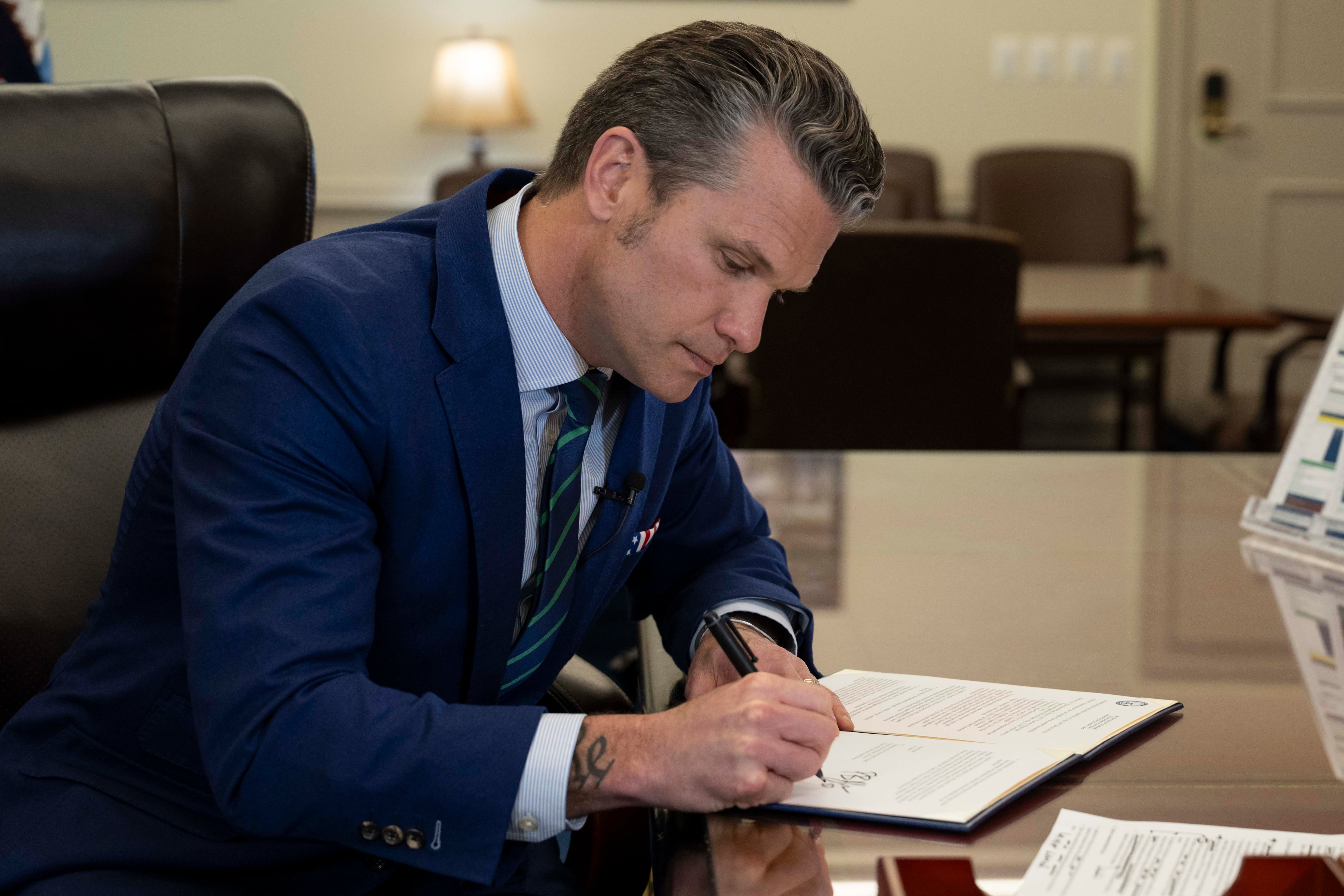An Army board of inquiry has recommended a general discharge for a decorated former Green Beret, finding no clear evidence the soldier violated the rules of engagement while deployed to Afghanistan in 2010.
Maj. Mathew Golsteyn , accused by the Army of illegally killing an unarmed, suspected bomb-maker, would retain retain most of his retirement benefit under a recommended general discharge under honorable conditions. While cleared of a law of armed conflict violation, the board did determine his conduct was unbecoming.
, accused by the Army of illegally killing an unarmed, suspected bomb-maker, would retain retain most of his retirement benefit under a recommended general discharge under honorable conditions. While cleared of a law of armed conflict violation, the board did determine his conduct was unbecoming.
The government had sought an other-than-honorable discharge.
"It makes no sense. It's a defective finding." Stackhouse told Army Times. "They nicked him for conduct unbecoming with no specific findings."
Army Secretary John McHugh , who has already stripped Golsteyn of a Silver Star and his Special Forces Tab, will decide whether to accept the board of inquiry's recommendation. Regulations dictate he can only act more favorably to Golsteyn than the general discharge prescribed by the panel, Stackhouse said.
, who has already stripped Golsteyn of a Silver Star and his Special Forces Tab, will decide whether to accept the board of inquiry's recommendation. Regulations dictate he can only act more favorably to Golsteyn than the general discharge prescribed by the panel, Stackhouse said.
Army Times sought a response from McHugh and received the following from Army spokesman Lt. Col. Ben Garrett:
"The results of the Board of Inquiry will be reviewed by the General Officer Show Cause Authority and the Army Review Boards Agency. As such, it would be inappropriate to comment on the results of the Board or the substance of the evidence considered by the Board," Garrett said.
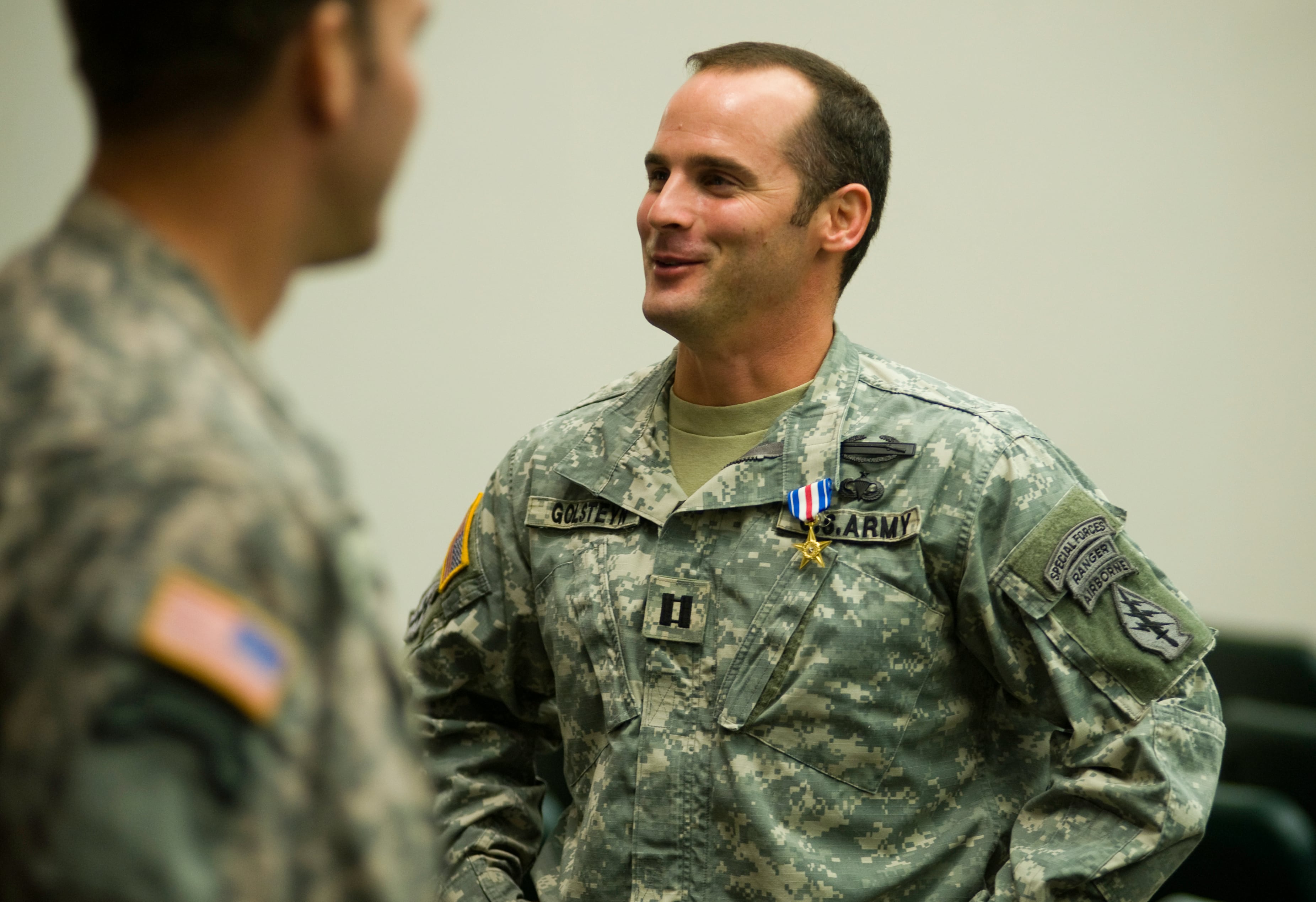
Then-Capt. Mathew l. Golsteyn is congratulated by fellow soldiers following his valor award ceremony in 2011.
Photo Credit: James Robinson/The Fayetteville Observer
Stackhouse said the appeal will be filed after the full transcript of the hearing is assembled, which could take over a month. In the meantime, he said, Golsteyn's discharge will proceed in parallel to the medical board process in determining the specifics of retirement benefits.
Stackhouse said Golsteyn remains unavailable for interviews, but did say that his client felt betrayed by the Army over the past few years.
"It's very fair to say he feels betrayed. We talked about that today. I also think that he feels vindicated by the testimony that has been presented: that there was witness after witness after witness after witness that testified to his moral courage, his decision-making and his character," Stackhouse said.
All along, Stackhouse and other Golsteyn supporters have maintained that the Army investigation failed to find any corroboration of the allegation, which stemmed from Golsteyn's video-taped polygraph during a 2011 job interview with the CIA.
No physical evidence was found in the Army investigation (of which the Army Times acquired a redacted version). Golsteyn allegedly admitted in the videotaped interview with the CIA that he shot, buried, dug up and burned the body of the victim after the victim identified and threatened an Afghan informant.
However, tests of multiple burn pits came up negative for human remains, according to the investigation. Witnesses also provided no corroboration to the allegation, and most also effused praise for Golsteyn's character and capabilities.
One member of the task force commanded by Golsteyn said: "Myself and pretty much anyone on our team would walk through fire for him." In the most negative statement, the investigator documented a major saying "Maj. Golsteyn was Type-A personality and could be very aggressive at times," though he knew nothing of any criminal or negligent activity.
Congressman Rep. Duncan Hunter , R-Calif., a McHugh critic and Golsteyn advocate, said in a statement that the hearing indicated troubling Army investigative procedures, from "an investigator who intentionally misrepresented the body of evidence to gain certain access, to information that was incorrectly referenced and transcribed in the investigation, to a last minute decision to admit evidence that was earlier determined to be inadmissible." He said he intended to continue to pursue the restoration of Golsteyn's awards "through any and all means available."
, R-Calif., a McHugh critic and Golsteyn advocate, said in a statement that the hearing indicated troubling Army investigative procedures, from "an investigator who intentionally misrepresented the body of evidence to gain certain access, to information that was incorrectly referenced and transcribed in the investigation, to a last minute decision to admit evidence that was earlier determined to be inadmissible." He said he intended to continue to pursue the restoration of Golsteyn's awards "through any and all means available."
Stackhouse expects his client will receive a high disability rating, with issues ranging from post-traumatic stress, traumatic brain injury, back issues and a heart issue stemming from Special Forces training. He noted that while Golsteyn's Special Forces tab had been was stripped, he remained a Special Forces officer, as the Army never transferred him to a different branch.
